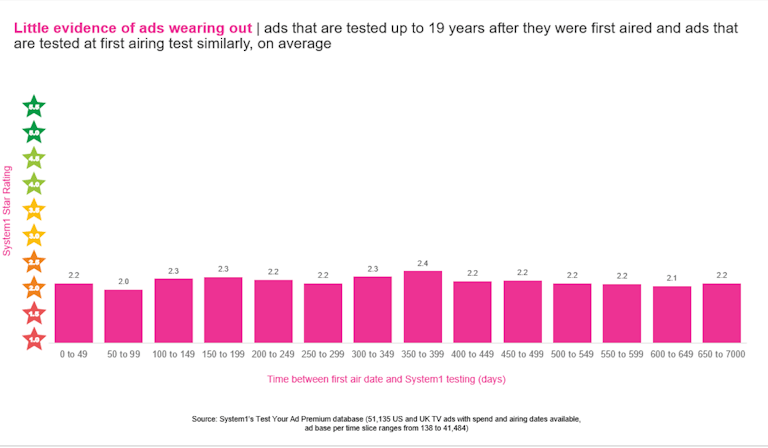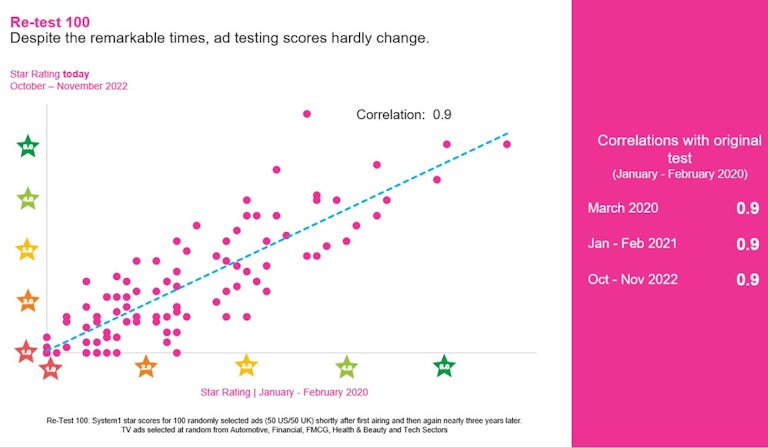While it’s a common concern among marketers that audiences will tire of their ads after multiple exposures or learn to tune them out, research shared exclusively with Marketing Week indicates the effectiveness of ads do not decline over time.
Effectiveness research firm System1 segmented the over 50,000 video ads within its database based on the gap between the date it tested the ad’s potential to drive long- and short-term effectiveness, and the ad’s original airdate. Most ads are tested immediately, but some had been tested as long as 19 years after first airing.
According to the analysis, if “wear-out” were a factor in ad effectiveness, ads would perform worse the older they were when tested, as they would be more familiar to audiences.
However, average effectiveness scores are consistent no matter how old the ads were at time of testing, remaining at a score of between 2 and 2.4 for long-term brand growth potential (or ‘star rating’) whether they were tested 0 days after airing, 300 days after, or 7,000 days after.

Meanwhile, in 2020 System1 tested 100 random ads aired in the six months prior to the onset of the Covid-19 pandemic in March, and retested them a year later in 2021 and again in 2022. Half of the ads were from the UK and half from the US.
The research recorded “no meaningful change” in scores over the two years, remaining at an average of 2.3 for the group as a whole.

In fact, some ads recorded improvements in effectiveness over time, particularly those which use a ‘fluent device’ such as repeated characters and slogans.
For example, ‘Submarine’, an ad that comes as part of Weetabix’s long-running ‘Have you had yours?’ campaign, initially scored a four star rating out of a possible 5.9 after first airing in January 2020. By October 2022, that rating had increased to 4.4.
The average score for all ads featuring a fluent device improved from 2.6 to 2.8 over the same time period.
Speaking on System1’s ‘Ritson on Recession’ webinar last week, Marketing Week columnist and Mini MBA founder Mark Ritson called it a “failure” that “so many marketers pull so many of their campaigns prematurely when their best days are yet to come”.
Indeed, in the UK, video ads only air for between 71 and 95 days on average, and the most effective ads air for less time. A five star ad airs for the shorter 71 days on average, while a one star ad airs for the longer period. In comparison, US five star ads enjoy a 25% longer lifespan on average than one star ads.
System1’s chief customer officer Jon Evans says older campaigns and intellectual property are therefore often a brand’s “greatest and most neglected assets”.
He adds: “The myth of wear-out in ads has a hidden cost. Good ads are cut down in their prime when they still have so much to offer commercially. UK marketers in particular need to realise that re-using ads and running campaigns for longer isn’t just efficient, it’s effective too.”
Source: marketingweek.com

